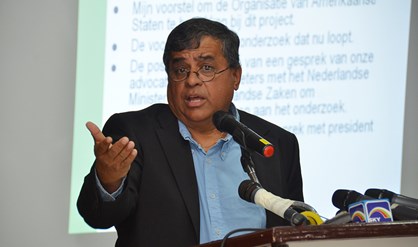The one-day course Decolonising The Mind (DTM) available on either 24 or 25 February explores the concepts and tools from the theoretical framework Decolonising The Mind. Two narratives of liberation had dominated knowledge, culture and activism the past 150 years: Liberalism and Marxism. They are rooted in the European Enlightenment. Decolonial thinking is a collection of contributions to a third narrative of liberation with different labels (postcolonialism, orientalism, subaltern studies, Islamic liberation theology). DTM aims to develop a coherent theoretical framework as an alternative to Liberalism and Marxism.
This course is aimed at activists and academics who want to know about and make a contribution to the development of this coherent framework.
The course deals wit the following questions:
1. What are the differences in theoretical framework between Liberalism, Marxism and DTM?
2. What are the differences in producing knowledge from the three frameworks: theories of knowledge including logic, methods of research and analysis for academics and activists?
3. What is the DTM framework: concepts, methods of arguments, attitudes of a (de)colonized mind, skills of a (de)colonized mind.
4. How do we apply the DTM framework in different areas of knowledge production and activism? We will deal with the following examples:
a. Decolonising mathematics (you don’t need expert knowledge on mathematics).
b. Decolonising world history: three views on world history
c. Decolonising economic theory: Islamic economic theory, liberal and Marxist economic theory.
d. Decolonising social theories: three views on race, class, gender en sexuality.
e. Decolonising political theory: three political theories on democracy, political systems and activism
f. Decolonising cultural theory: three theories about authority of knowledge production, identity formation, religion and ethics.
Course material and preparations:
The course is an intensive interactive engagement that starts with a preparation, the course itself and engagement after the course.
On February 17th before the course the participants will receive PowerPoint presentations on the different topics of the course. Participants are supposed to go through these presentations before attending the course. They are also asked to prepare a presentation of maximum 10 minutes on a topic by using or criticizing the DTM framework as explained in the PowerPoints.
Further Reading:
- Theorizing visibility and vulnerability in Black Europe and the African diaspora
- The importance of Black dialogues in the European academic sphere
Teaching methods:
Each session starts with a summary of a PowerPoint presentation. Then we spent the course with debates, presentations by participants and analysis of arguments in propositions that develops the topics in the Powerpoint. Special attention is given to possible critiques of the DTM theoretical framework, apart from the critique on Liberalism and Marxism.
After the course:
An important aim of the course is to enable participants to use the DTM framework to intervene in political discussions from a decolonial perspective. Participants are invited to use the course to prepare such intervention (writing an article, making a review, submitting discussion pieces, organizing a debate etc). After the course a Facebook page will be set up where participants can provide feedback to each others on how to use the DTM framework in activism and academia.
Date and time:
The course is held twice from 9 am to 5 pm; one on Saturday 24th and one Sunday 25th of February with the following time schedule:
09.00-09.15: welcome
09.15-11.00: Session 1
11.00-11.15: tea break
11.15-12.30: Session 2
12.30-13.30: lunch
13.30-15.00: Session 3
15.00-15.15: tea break
15.15-17.00: Session 4
Location:
London IHRC, 202 Preston Road, Wembley HA9 8PA
Nearest stations: Preston Road (Metropolitan Line), 1 minute walk and South Kenton (Bakerloo Line and London Overground) 12 – 15 minutes walk.
Fees and registration:
The cost of the course is £25 (full rate) and £20 (concessions). In the fees are included course material, lunch and refreshments.
The concessionary rate is available to OAP’s, students, the unwaged and regular IHRC supporters.
You will be automatically registered once you pay for your ticket. You can contact the DTM coordinator by emailing events@ihrc.org or calling 020 8904 4222.
The Lecturer
Sandew Hira is coordinator of the Decolonial International Network. He is finishing an in-depth study on a theoretical framework of DTM that will be published around June 2018.







